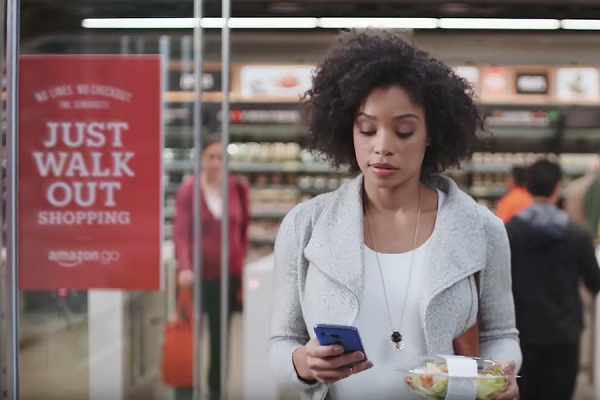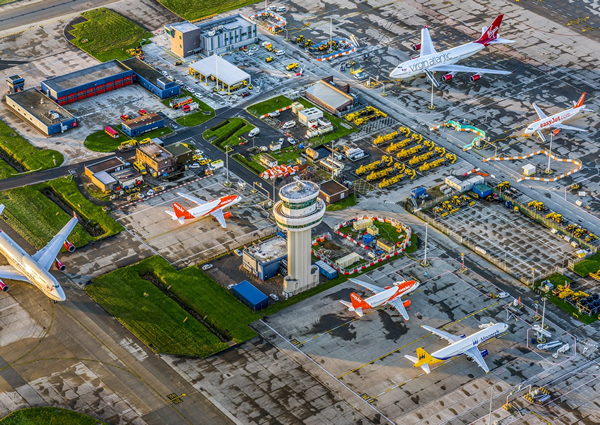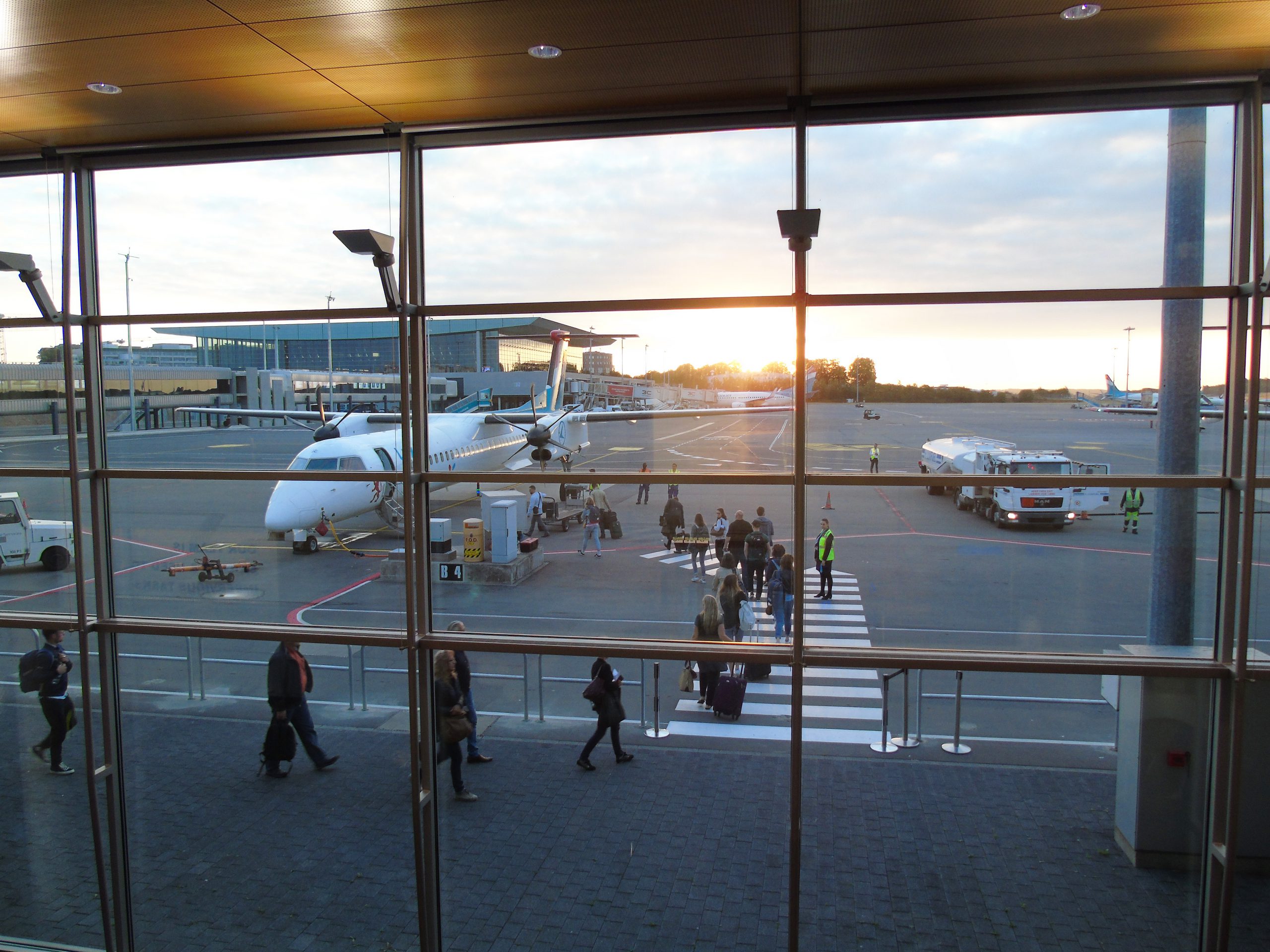
This article is the latest in our popular new series in association with Tito’s Handmade Vodka, which examines travel retail and airport sector ‘disruptors’ – focusing on companies and individuals challenging established models through innovation.
No other industry knows better than travel retailers the importance of time to help increase spend per passenger and shop conversion rates, writes António Luis Rodolfo*.
Some studies point out that for every additional ten minutes the passenger stays on the airport airside area (‘dwell time’), the propensity to shop increases by +30%.
All travel retailers know only too well the positive effect on sales every time there is a flight delay!
Dwell time is also sometimes referred to as the ‘Golden Hour’ (the average time a passenger is free and relaxed for shopping around the airport), which is essentially the period during which airports, retailers and brands need to communicate effectively to convert passengers into buyers.
Imagine that instead of just the one Golden Hour there were several? Inflight, of course, delivers this.
Usually passengers spend much more time inside a plane – especially long haul flights – than at airports and normally with lower stress levels, since they have already passed all airport hurdles (check-in, passport control, security) and managed not to miss their flight.
It is well known that duty free onboard:
- is not a significant business compared with other duty free channels (US$2.6 billion, around 5% of total annual global duty free sales);
- its turnover has remained more or less flat during the last decade;
- only around 1.5% of passengers make purchases on board, with an average spend between US$1 – US$2;
- airline indicators are very low when compared with airport benchmark references: +30% passenger shopping penetration, with global duty free sales per departing passenger of +US$25 in the latter;
- further, some airlines have decided to stop on-board sales altogether – e.g. Delta, American and, most recently, United.
However, it is also fair to take the following into consideration:
- airlines sell duty free onboard using a small and unattractive trolley with a restricted number of products that normally passes fast along the aisle;
- airlines are providing more and better wi-fi connections on board, and that is opening new business opportunities;
- by 2020 an estimated 50% of the world’s aircraft will be connected to meet the aspirations of Millennial travellers (according to SITA) and this revolution will enable passengers to transfer their digital lives from ground to air. This, in turn, will open up new business opportunities in ways that were not hitherto achievable;
- currently global airline traffic surpasses 7 billion passengers per year and is expected to double by 2029 (ACI).

So, isn’t there enough room for serious improvement in the duty free airline channel? How many industries have these expected growth rates today? And this, coupled with a wealthy ‘captive audience’ and dwell time to kill?

What is the opportunity?
Closer collaboration between duty free operators and airlines must be part of the future. The latest idea consists of offering airline passengers products – and not just the normal duty free core categories. These new products consist of destination services, e.g. booking a restaurant, hotel, buy a special tour trip, that can be bought online:
- before the flight and be delivered to the passenger’s seat
- during the flight and be used in the destination city
Passengers can access online offers via airline seat entertainment screens or via their own mobile tools, using a wi-fi connection.
Note, only about 50% of holiday expenses are currently made with hotels, airlines/flights and rental car companies, and so other services will be disrupted and digitalised as well in the near future. An effective early/post engagement in the traveller trip cycle could increase the ATV (average ticket value) by more than 2.5 times.
Apart from the potential to capture additional revenues, there is also an opportunity for duty free operators to widen the touch points during the traveller journey (not only in the airport) and be more relevant for the traveller.
What are the threats?
If duty free operators and airlines are not interested in investing (as it appears, except for a few brave ones), then who else could be better positioned, with enough capital and agility to invest in this channel?
What companies are fighting hard to have a ‘stake’ in every world business? Which of them have a clear ‘one-stop-shop’ customer strategy focus?

Certainly the biggest external threats come from the huge online retailers (Amazon, Alibaba, OTA’s (online travel agencies) and metasearch engines (Google, Expedia, Tripadvisor). They are in a better position than duty free operators to communicate with the passenger and know in advance when and where they are travelling. Some are already proposing similar products with very competitive prices and convenient service.
For example, Alibaba has that information since most Chinese travellers use Alipay to pay for their trips.
Looking at the online retailers’ dynamics, high ambitions and credo (the winner takes it all!), innovation and consistent acquisitions and partnerships, it is not that difficult to figure out that they could pilot a new travel retail platform powered by their technology, and meaningfully disrupt the duty free & travel retail market.
It’s a US$65 billion industry, with forecast year-on-year growth of +7.9% for duty free sales by 2025. So it is a very significant business not to be on the major online players’ radar and almost certainly a logical step in their travel strategy. It is only a matter of time until they enter the market and become a reality for everyone to face.
Apart from that, if online players move to obtain duty free licences they will benefit from selling goods free of duty and taxes.
What is the industry doing and what more can it do?
The industry talks a lot about reinforcing Trinity co-operation (airports, retailers and suppliers), the importance of sharing consumer knowledge and data, differentiating the channel’s USP against other channels and working together to create more value. But is duty free truly generating the value that it could? What if there was no passenger growth?
Of course, industry passenger growth is benefiting overall duty free sales growth but, at the same time, it is also hiding inefficiencies and lack of attention to other realities and ‘details’. Isn’t it time to get out of this comfort zone and take a long, hard look around?

How much, for example, is duty free & travel retail currently losing to downtown shopping and online channels? How much will it lose in the future? What if the Trinity approach was simply not enough any more? Wouldn’t it make sense to finally engage other players – airlines, for example, the key ‘owner’ of the traveller, and talk more of a ‘Quad-Trinity’ strategy. Or could a new Trinity be more effective if it includes airlines, but not airports?
Will airport “location control” by duty free operators continue to be a critical logistic advantage?
Duty free operators need airlines more than they can imagine and airlines have plenty of choices in their partners.
There is a quote from Jack Ma (Founder of Alibaba) from his company’s early years of expansion: ”E-Bay may be a shark in the ocean, but I’m a crocodile in the Yangtze River. If we fight in the ocean, we lose. But if we fight in the river, we win!”
I would rephrase and adapt Jack Ma’s quote to the duty free & travel retail industry to fight against online retailers and disruptors: ”If we just fight on the ground, we lose. But if we fight on the air, we win!”
To ‘conquer the air’, duty free operators need to lead and drive this digital challenge and not let other players occupy that space. For that, the top duty free operators should effectively trust each other and work together for the sake of a bigger purpose and mission. It’s a once in a lifetime opportunity. So what are they waiting for?
There are some initiatives of this type of collaboration, e.g Heinemann with Lufthansa and Wizz Air, the development of airport travel blogs and content from Munich Airport and a few other modern apps and websites. However, all of these will not be enough to win global travellers’ hearts and minds for duty free shopping against the powerful forces of the online giant traffic generators and their huge brand awareness.
Duty free operators need to quickly establish the rules of this common vision and a “Blockchain” consensus of collaboration, in order to protect the channel against online retail players and invest in a common global online platform to be leveraged, among others, onboard the airline passengers’ seat entertainment systems.

To effectively offer a ‘one-stop-shop’ platform concept, which covers all travel products and services in a kind of ‘Destination Booking Platform’ that enables passengers to plan, book and pay for all travel products – before flying and during the flight.
To win the battle, duty free operators really need to think and act like an online retailer, have a single and obsessed customer focus, build strong content together, understand their language and the new ways of communicating with consumers and engage with them along their trip cycle process.
Note again, that additional revenues are not just coming from selling the core duty free categories. They come from destination services, airport services, affiliate marketing programmes, advertising, collecting data about the traveller that can be used for several other purposes (e.g real time market surveys, loyalty schemes), and build a sustainable relationship and communication with the traveller community, generating the goodwill that translates into lifetime customer value.
Don’t let others control your data, as this is the new ‘oil’ which everyone is silently fighting to control.
All this will surely also contribute to increase airline ancillary revenues, which are needed to surpass 40% of total revenues [in that industry].
Finally, if duty free operators do not lead this opportunity and occupy this space, others will! Again, it is only a matter of time, and a lot of value will be lost if the industry continues to wait in its comfort zone.
Clay Christensen says in his book, Innovator’s Dilemma: “Smart companies fail because they do everything right. They cater to high profit margin and ignore the low end of the market, where disruptive innovations emerge from.”
So, now is the time to walk the talk, be prepared to take risks and keep pace with how society is moving.
*António Luis Rodolfo is former Dufry Global Head of Operations and Nuance Global Strategic Marketing Director. Before joining Nuance, he was Commercial Director for ANA, overseeing commercial activities across Portugal’s airport network (2006-2012). In his time there he launched the first e-commerce platform at Lisbon Airport. Currently he is working as an Airport & Travel Retail Consultant, based in Zurich, Switzerland.
Contact: +41 79 171 85 56;
E-mail: luisrodolfo213@gmail.com;
linkedin.com/in/antónio-luis-rodolfo
**A previous version of this article appeared on industry Blog www.trunblocked.com




